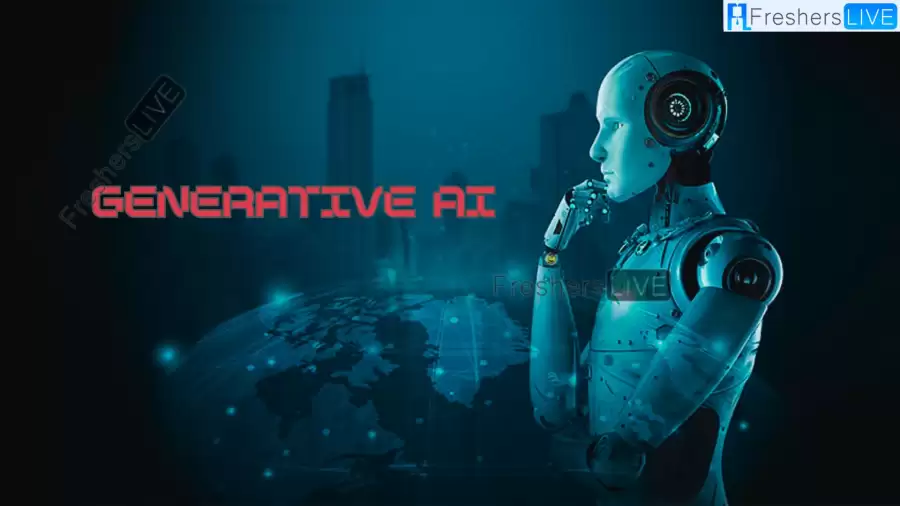Will Generative AI Replace the Future of Remote Work? Generative AI to Prepare for This Future
Updated Sep 28, 2023

Generative AI Addressing The Challenges
Enhanced Productivity with Virtual Assistants and Chatbots
Effortless Content Creation
Streamlined Training and Onboarding
Informed Decision-making and Collaborative Assistance
Seamless Multilingual Communication
Will Generative AI Replace the Future of Remote Work?
In conclusion, Generative AI is the future of remote work but is currently not replaced with future remote work. For senior executives, staying informed about emerging technologies such as generative AI and understanding their potential impact on the future of work is imperative. Generative AI is unlikely to entirely replace remote work or human employees, but it is positioned to be a crucial tool that enhances remote work experiences.
Generative AI is a transformative force reshaping how engage in remote work, offering immense potential. Senior executives should harness this technology wisely, considering its ethical implications and its human-centric integration. The future of work is undeniably evolving, and generative AI stands at the forefront of this transformation. Embracing it judiciously could unlock the door to a more efficient and productive remote work environment.
Tech made easy at Fresherslive. Discover the latest trends with our simple articles, making tech news enjoyable and easy to read, allowing you to stay informed in an effortless manner.
Generative AI to Prepare for The Future
Education and Training:
Invest in comprehensive training to upskill your workforce, enabling effective and ethical use of generative AI tools.
Data Security and Privacy:
Prioritize robust security measures to safeguard sensitive data utilized in generative AI systems, ensuring data privacy and integrity.
Ethical Use:
Establish unequivocal guidelines regarding the ethical deployment of generative AI, particularly in content creation and decision-making, fostering responsible usage.
Human-Centered Approach:
Maintain a human-centered approach in the realm of remote work, leveraging generative AI to amplify human interactions and productivity rather than substituting them.
Generative AI and Remote Work
The landscape of work has been dramatically reshaped in recent times, experiencing a significant surge in remote work. This shift was accelerated by the pandemic, propelling remote work to the forefront of mainstream work culture.
Across the globe, businesses have warmly welcomed remote work due to its advantages, including adaptability, cost-effectiveness, and the ability to tap into a vast global talent base. However, alongside its many benefits, remote work does present challenges, including communication barriers, productivity anxieties, and the necessity for efficient collaboration tools.
Generative AI
Generative artificial intelligence, also known as generative AI or GenAI, is a type of computer intelligence that can create things like words, pictures, or other media using patterns it learned from existing data.
In the early 2020s, there were big advancements in this technology. It allowed computer programs to understand and use human language to make more things. Some examples include computer programs that can chat like a person or even create pictures from text.
Generative AI is useful in many fields like art, writing, making software, designing products, healthcare, finance, games, marketing, and fashion. Big companies like Microsoft, Google, and Baidu, as well as smaller ones, are investing a lot in this technology. However, people are worried about how it might be misused, like making fake news or images to trick or fool others.
Will Generative AI Replace the Future of Remote Work- FAQs
Generative artificial intelligence (Generative AI or GenAI) is a type of computer intelligence that can create various things like words, pictures, or other media using patterns it learned from existing data.
In the early 2020s, there were significant advancements in Generative AI technology, allowing computer programs to understand and use human language to generate various things, including realistic chats and images from text.
Generative AI finds applications in diverse fields such as art, writing, software development, product design, healthcare, finance, gaming, marketing, and fashion.
Yes, prominent companies like Microsoft, Google, Baidu, and many smaller firms are investing significantly in Generative AI technology to explore its potential applications and advancements.
Some concerns revolve around the potential misuse of Generative AI, such as creating fake news or deceptive images that could mislead or deceive individuals. It's important to address ethical implications and ensure responsible usage.







